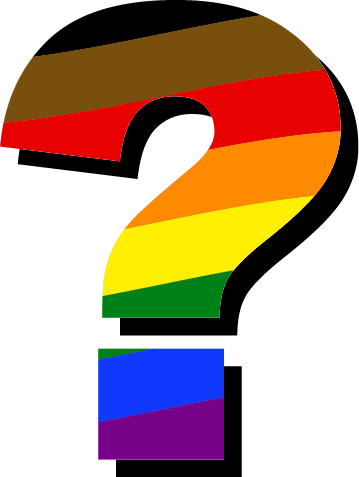What does LGBT mean?

LGBT+ stands for lesbian, gay, bisexual, transgender and the plus sign referes to people with gender expressions outside traditional norms, including nonbinary, intersex, and other queer people (and those questioning their gender identity or sexual orientation), along with their allies. It is commonly used to refer to people who are attracted to people of the same gender, people with gender identities that differ from the sex assigned to them at birth, people with nonbinary identities and people whose sex characteristics do not fit typical definitions of female or male.
Gender does not by definition relate exactly to biological sex; For some people their assigned sex at birth is very different to how they experience their gender.
The World Health Organisation defines gender as:
“Gender refers to the socially constructed characteristics of women and men – such as norms, roles and relationships of and between groups of women and men. It varies from society to society and can be changed.
"While most people are born either male or female, they are taught appropriate norms and behaviours – including how they should interact with others of the same or opposite sex within households, communities and work places. "
When individuals or groups do not “fit” established gender norms they often face stigma, discriminatory practices or social exclusion – all of which adversely affect health.
"It is important to be sensitive to different identities that do not necessarily fit into binary male or female sex categories.” (WHO, 2017)
Transgender is an umbrella term for people whose gender identity differs from what is typically associated with the sex they were assigned at birth.
It is sometimes abbreviated to trans.
Some Transgender people experience gender dysphoria, this is a condition where a person experiences discomfort or distress because there's a mismatch between their biological sex and gender identity. It's sometimes known as gender incongruence. See your GP if you think you or your child may have gender dysphoria. For more information click here
Not all transgender people choose to have hormone therapy or gender reassignment surgery and those who do may have to wait a long time before getting treatment. Questions about whether a trans person is on hormones or has had surgery should be avoided unless this information is directly relevant. In Sexual Health Services we may need to ask questions about this to decide what tests and treatments are most appropriate. This information will always be kept confidential.
Some people identify neither as male nor female: they feel as gender neutral, or as having no gender at all (agender). They may also feel that their gender identity varies at different times (genderfluid).
People of non-binary gender may use they/them pronouns and may use the title Mx ("mix") instead of Mr, Mrs, Miss or Ms. Non-binary identities are not currently recognised under UK law, although many other countries recognise them as legally valid. More people are coming to recognise and respect non-binary identities.
We all have a sexual identity! This can differ from person to person. We don't all experience attraction in the same ways, so it is very personal to every individual person. Some sexual identities you may have heard of could include:
It's natural to be confused about your sexuality or need time to work out who you are. Some people know who they're attracted to from a really young age. For other people, it's not so simple and can take a while to work out. A person should never feel pressured to label their sexual identity and is it ok to question!
Facts: